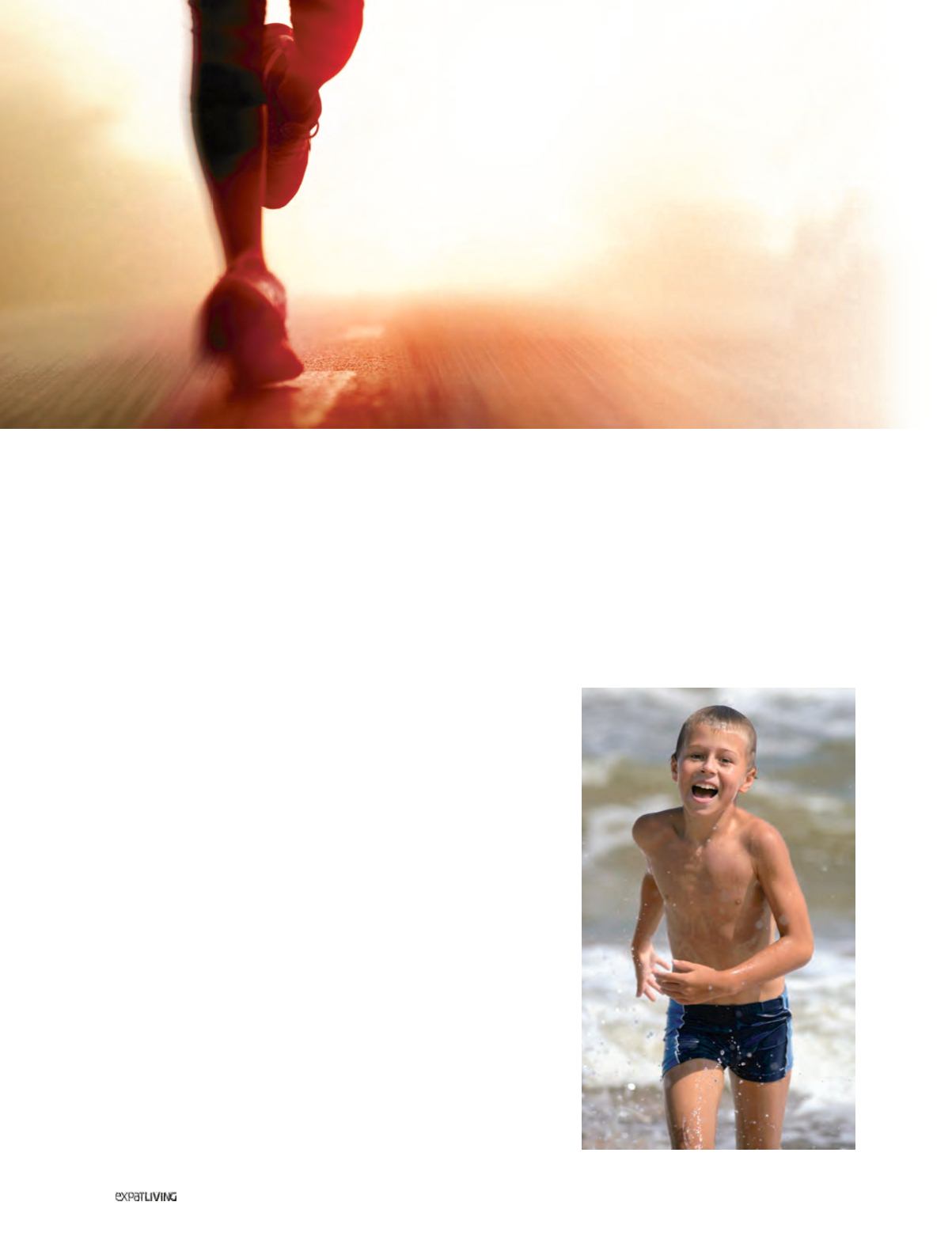

288
May15
HEALTH&FITNESS
COMMENTARY:
RUNNING
Having been an unnaturally idle
child, with her nose mainly stuck
in a book for the first twenty-odd
years of life, perhaps VERNE
MAREE shouldn’t be allowed
to comment on the subject of
children and running. There was
no stopping her, however.
R
unning, either as part of free
play or in organised games,
is obviously good for children.
For one thing, it’s accepted
as being key to building strong bones.
Luckily, most youngsters love to run
around.
But what about that hot, miserable,
whining seven-year-old in purple Nikes
being chivvied along the East Coast
Park by a probably well-meaning parent?
Should a child that young be pushed to
run more than he or she wants to? On
the other hand, should a keen 13-year-
old be allowed to run a full marathon?
How far is enough? How far is too far?
The Ayes
Former elite triathlete Ben Pulham of
Journey Fitness Company is strongly
in favour of children running. “Growing
up as a runner laid a really great aerobic
foundation for my career as a triathlete,”
he says, “as well as an appreciation for
living a healthy lifestyle.”
He feels that children who are keen
should be encouraged to run formal
distances. “Short cross-country races
and athletics are a great starting point
Children and Running
– How far and how fast?
for youngsters with a passion to run. It
worked for me, and it has worked for
many of my friends.”
Distances should be age-appropriate,
though, says Ben, whose running
career started when he was six, doing
athletics at the local club. “The longest
race at that age was about 400m,”
he remembers “From there I went to
800m, 1500m, 3000m and then to
cross-country. When I was back in NZ
in January this year, I found a certificate
from when I was 10. I ran a 10K fun run
in 44 minutes.”
Would he encourage his own children
to run?
“Absolutely,” says Ben. “I’m so looking
forward to the day that I can head out
for a run with my kids.”
Sensibly, he adds that youngsters
should enjoy their sport, whatever it is,
and advises parents not to focus on
results. Instead, the focus should be on
participation, and on learning the skills
of the sport. By developing a solid skill
level at a young age, he believes, they
will have less risk of injury as they age
and are likely to be faster and better
athletes in the long term.
According to the American Medical
Athletic Association, there’s no
scientific evidence “that kids will
tear up ligaments, destroy cartilage
or damage growth plates with high
mileage”. Therefore, American experts
conclude that there is no reason to
disallow the participation of a young
athlete even in a marathon, “as long
as the athlete enjoys the activity and is
asymptomatic”.
In his
Lore of Running
, South African
sport scientist Dr Tim Noakes agrees
that there is no evidence for any lasting
physiological harm caused by pre-
pubertal children training intensively.
In his opinion, talented young runners,
even under the age of 10, who choose to
run distances of 10K or longer, “are at no
greater risk of an unfavourable outcome
or injury than are adults completing
the same distances under the same
environmental conditions”.



















